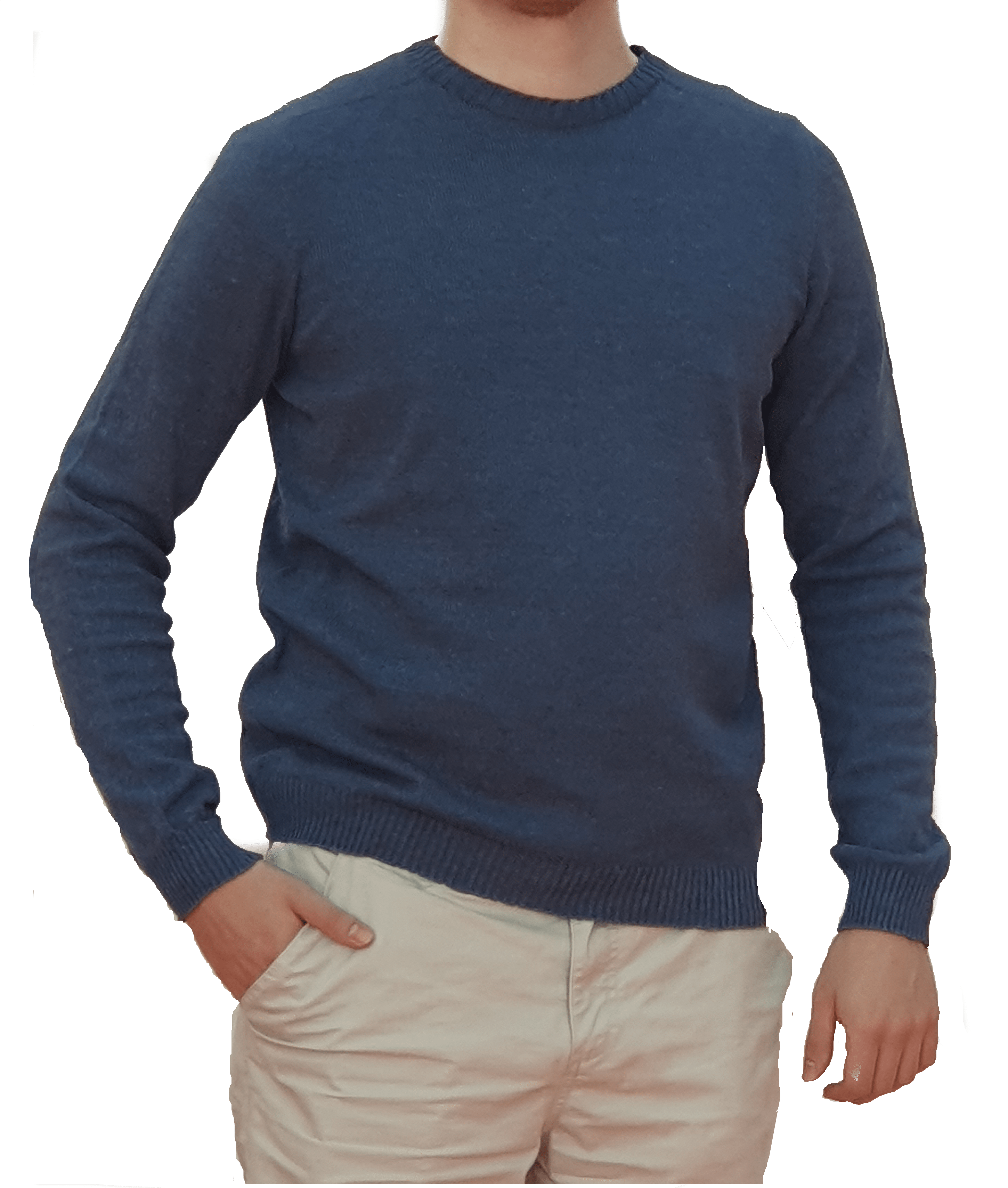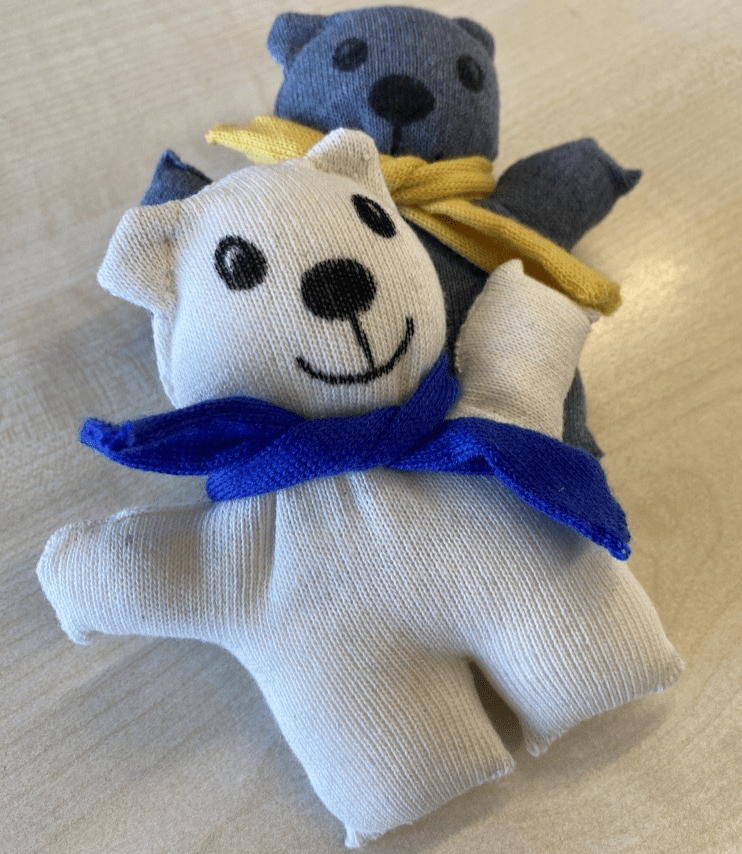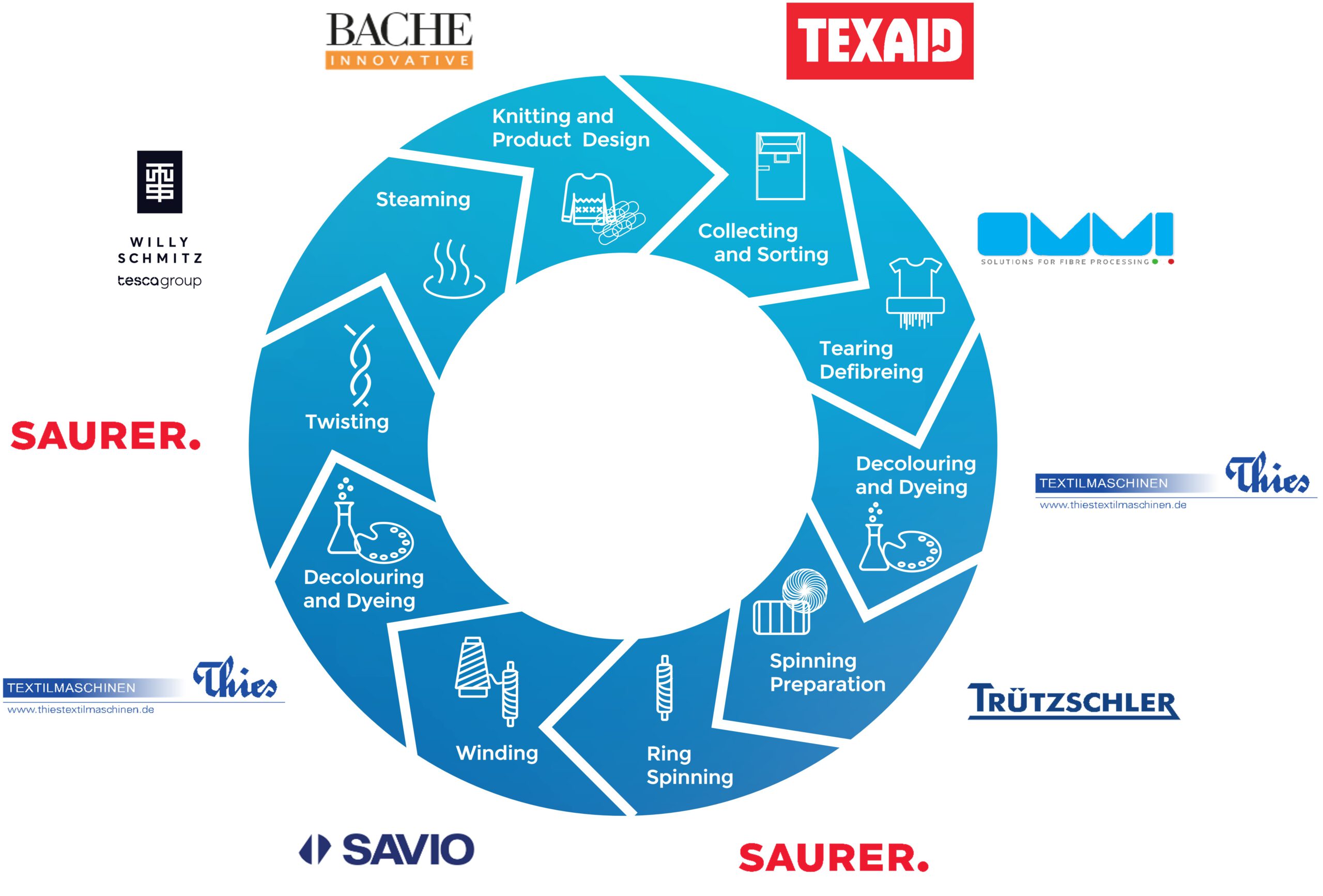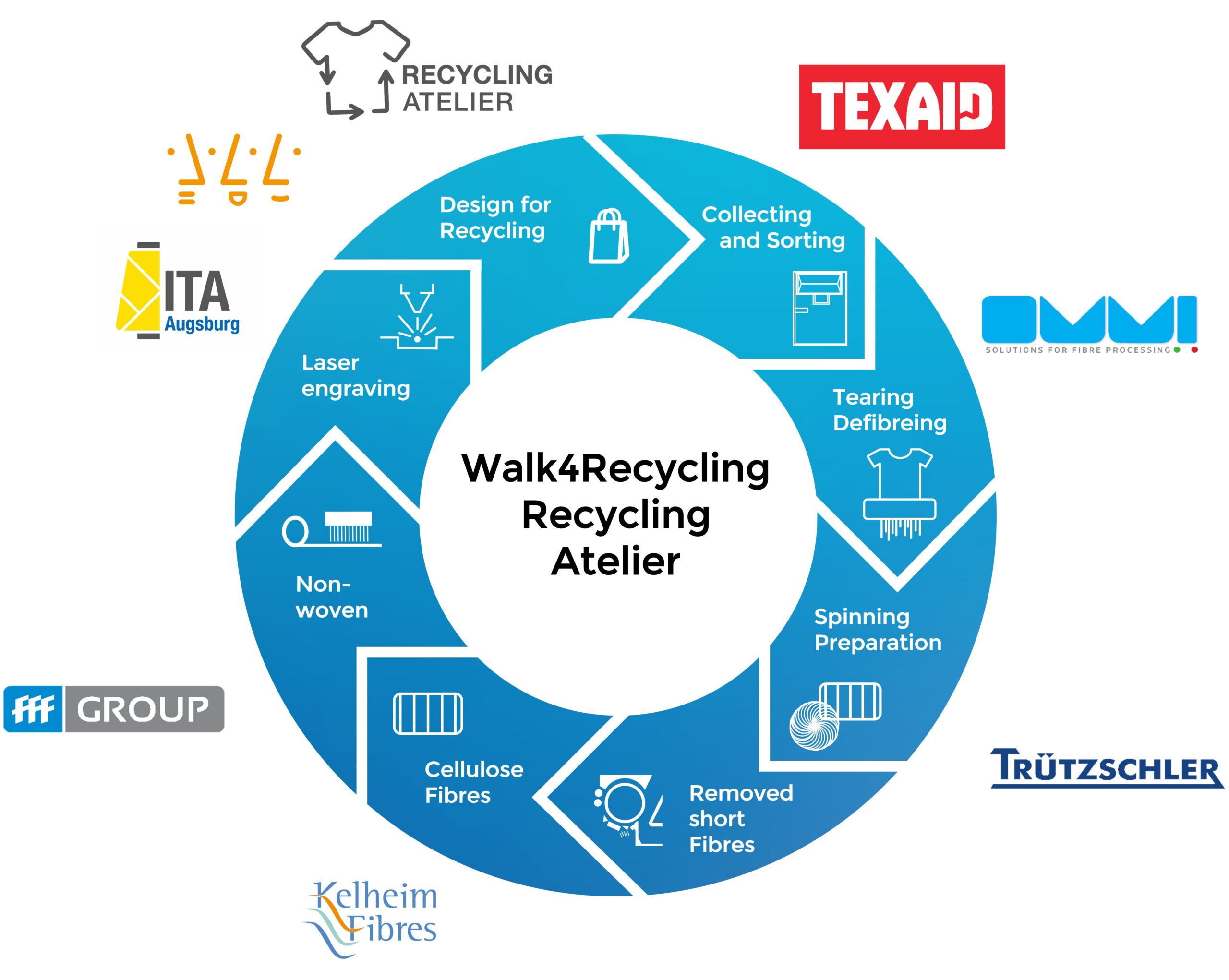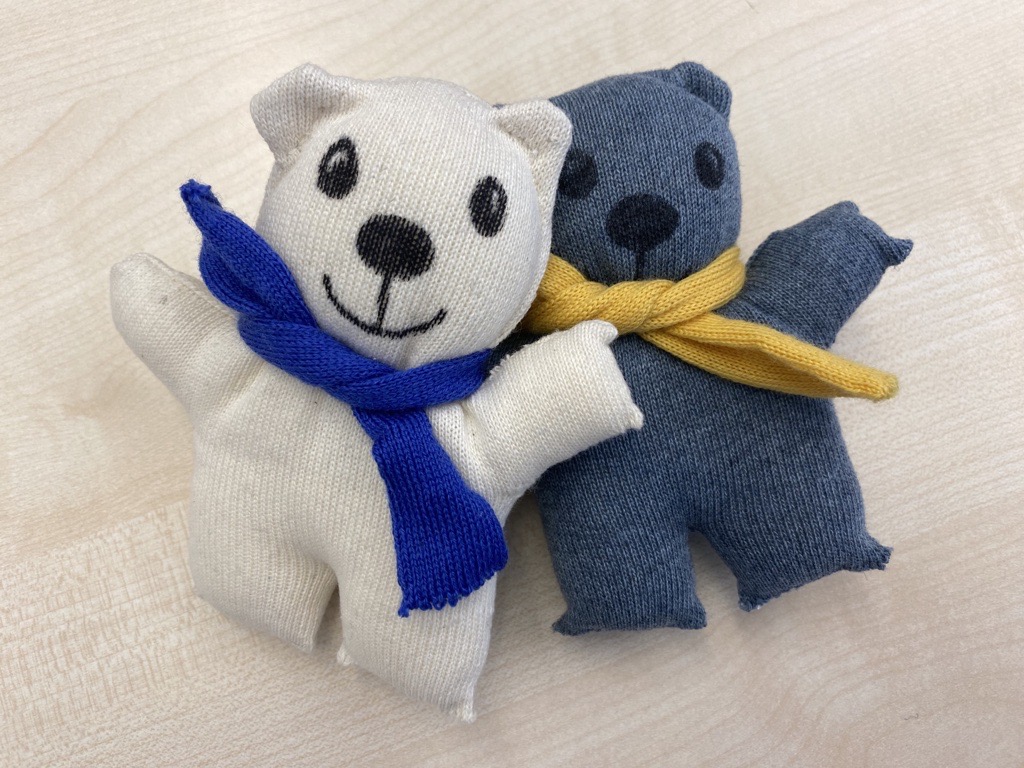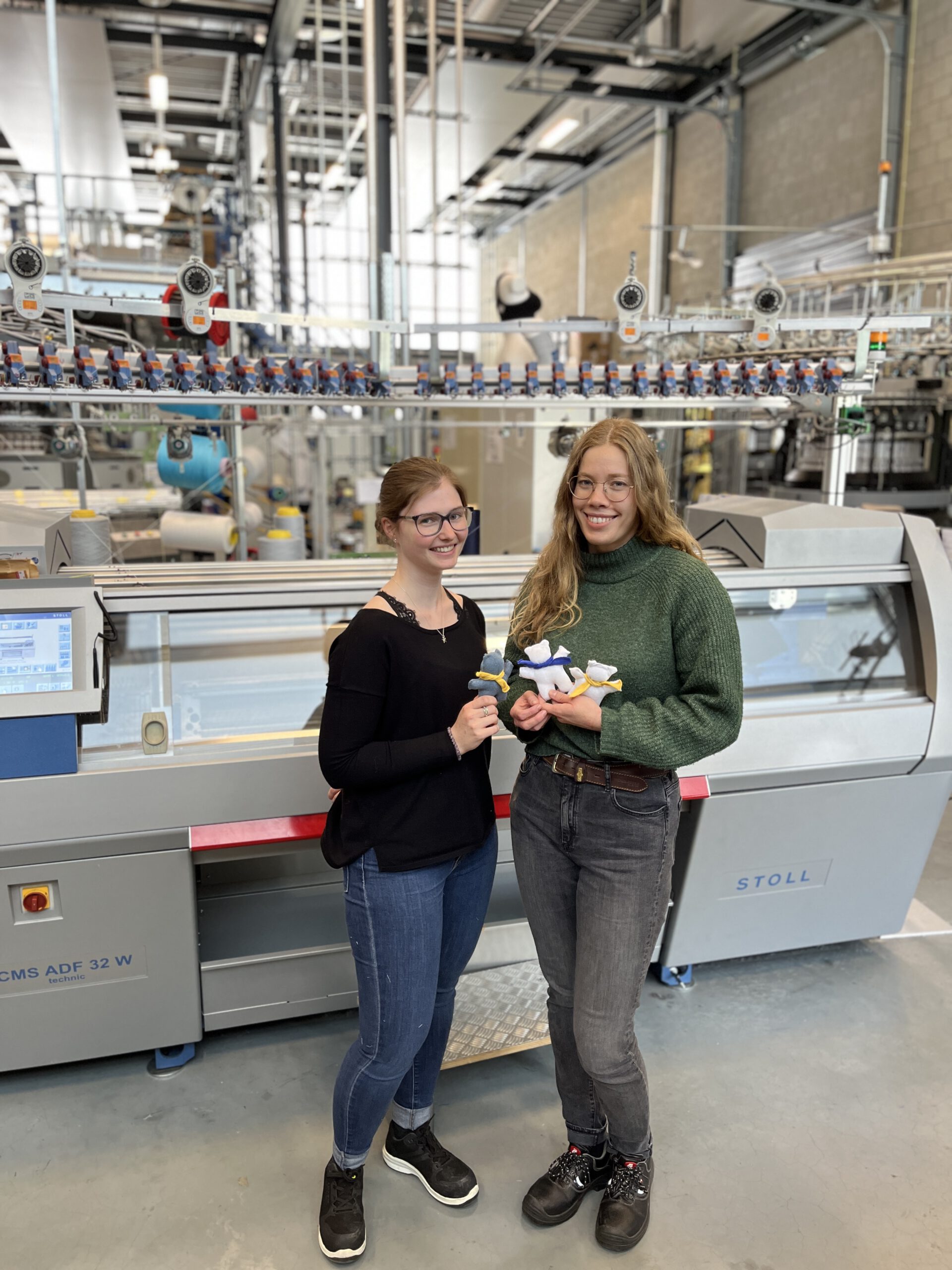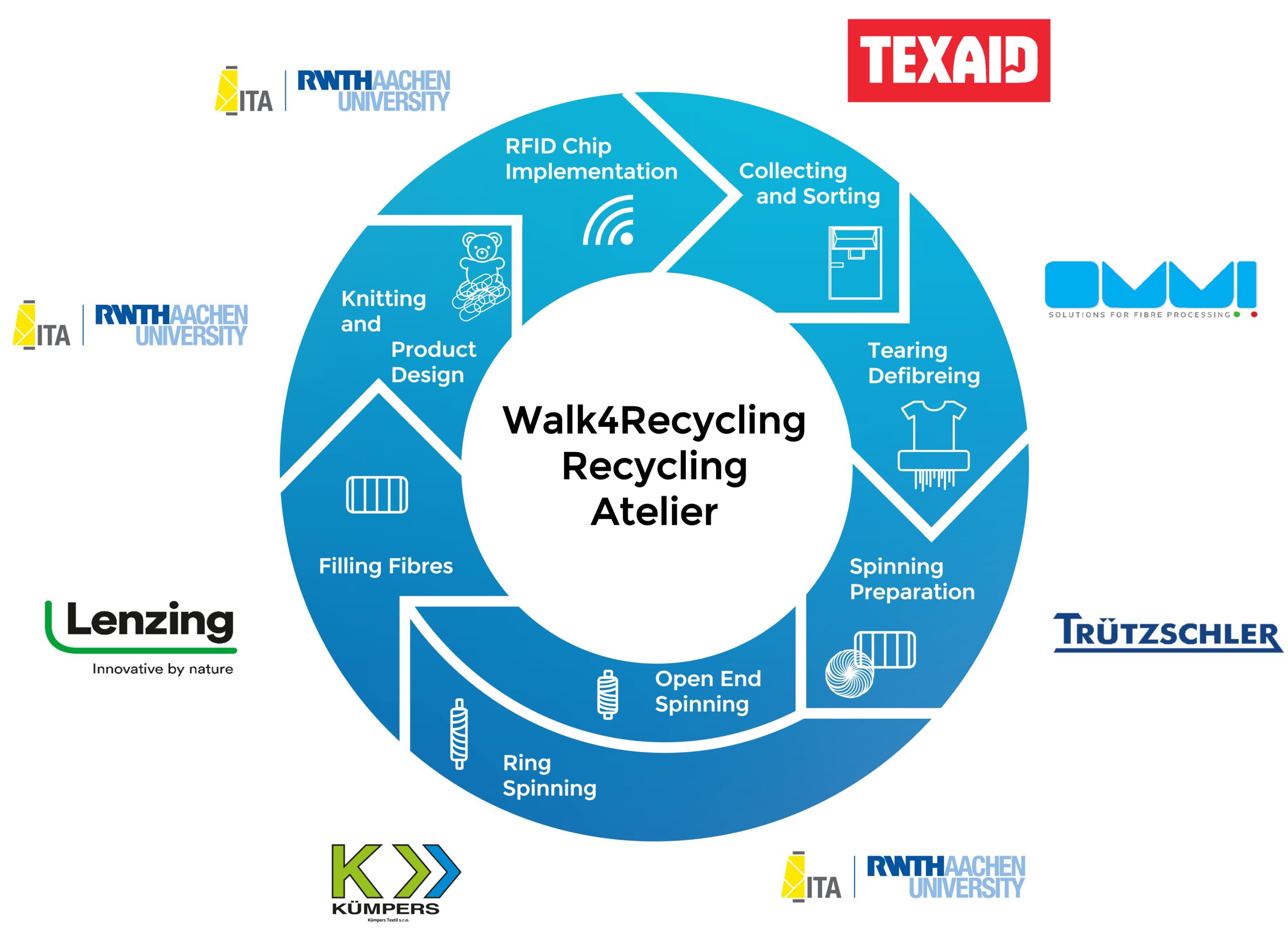Mechanical Recycling of Textiles
Under the headline "Walk4Recycling", a tour of the fair will show the cycle of used textiles (worn knitwear) into a new flat-knitted sweater made with a ring spun yarn of the blend 65% recycled cotton / 35% virgin polyester. This high proportion of recycled fibres from post-consumer textiles for a ring spun yarn of this fineness is an innovation, as today primarily coarse rotor yarns for lower-quality textiles are spun from these materials. The industrial partners participating in the Walk4Recycling are primarily partners of the Recycling Atelier who contribute with their technologies to the fact that in the various process stages these old clothes and subsequently this fibre material can be processed again into a yarn of new value and high-quality ready-made garments.
This tour offers visitors the opportunity to follow a complete recycling cycle with the numerous process stages from tearing the old textiles, preparing and spinning the fibres, winding and twisting the yarn to produce a new sweater during the fair. This website provides detailed information on the participating exhibitors and their machines and technologies for this mechanical recycling of garments. A short film gives additional insights into the different processes for the production of this sweater. The products from the different processes are shown as demonstrators at the participating exhibitors.
The ring spinning tester of the Institute of Textile Technology at RWTH Aachen University processes this fibre blend of recycled and new fibres during the trade fair and thus integrates itself into the tour.
Recycling Loop Sweater
The ring spinning tester of the Institute of Textile Technology at RWTH Aachen University processes this fibre blend of recycled and new fibres during the trade fair and thus integrates itself into the tour.
Recycling Loop Bag
A secondary circuit demonstrates the utilization of residual materials from yarn production. Filzfabrik Fulda GmbH has produced two different nonwoven materials to showcase the latest advancements and future steps. The first mixture comprises 60% regranulated PET from Filzfabrik Fulda and 40% card sliver waste and short fibres from the main cycle. The inclusion of rPET is crucial for providing sufficient strength to the material, giving the cotton cleaning material a second life. This nonwoven material is used to create a demonstrator bag, which incorporates various aspects of design for recycling. It minimizes the use of yarn, features a clever closing mechanism, and includes laser-printed logos. The QR code on the bag leads to our website and is positioned in a way that allows for easy removal during subsequent recycling cycles, addressing the challenge posed by printed elements.
The second material mixture, developed in collaboration with Filzfabrik Fulda and Kelheim Fibres, takes Design4Recycling a step further by incorporating viscose fibres as strengthening fibres. The ultimate goal is to eliminate the use of rPET entirely. Kelheim Fibres is working on a viscose fibre that can be derived from residual cotton waste, resulting in a similar composite mixture. As a result, this mixture can be recycled in a closed loop system in the future, with the short cotton fibres serving as raw material for the production of viscose. The mixture consisted of 15% viscose, 50% rPET, and 35% cotton.
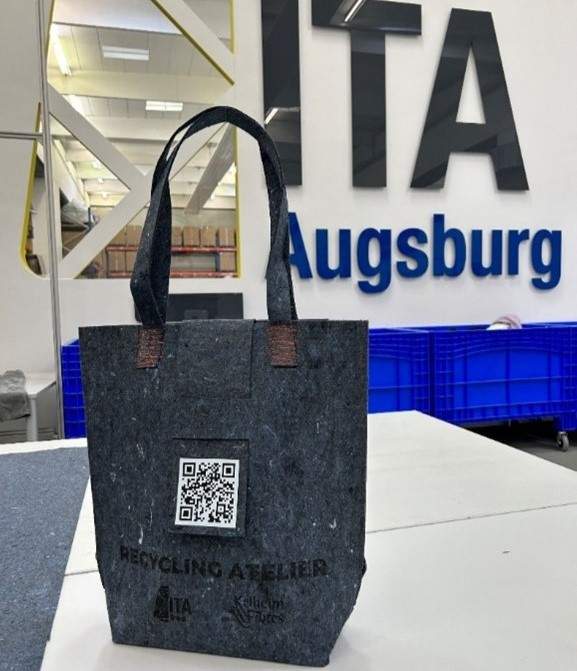
The nonwoven material derived from viscose, rPET and cotton fibres has the potential to serve as a substitute for various typical applications, including insulation, packaging, acoustics, and geotextiles.
- Collecting & Sorting
- Tearing & Defibreing
- Spinning Preparation
- Removed short Fibres
- Cellulose Fibres
- Nonwoven
- Laser Engraving
- Design for Recycling
Recycling Loop Teddybear
Another recycling loop leads from PCW / used clothing of various origins into knitted teddies made from ring spun and rotor spun yarns with various blends (> 50 % recycled fibres) of 50 tex (Ne 12, Nm 20) and 30 tex (Ne 20, Nm 34).
The teddy bears are produced in flat knit fully fashion technology at the ITA in Aachen and filled with TENCEL™ fill fibres with REFIBRA™ technology and an RFID chip. This chip can be read by mobile phone and leads to the website. The teddies offer the possibility to experience the feel and look of the yarns in the knitted fabric.
- Collecting & Sorting
- Tearing & Defibreing
- Spinning Preparation
- Open End Spinning /
Ring Spinning - Filling Fibres
- Knitting & Product Design
- RFID Chip Implementation
